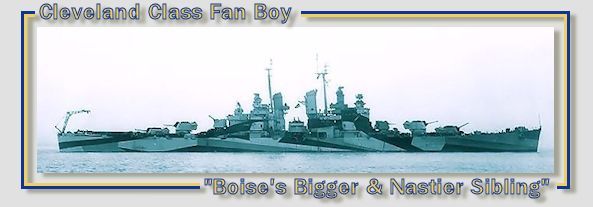kfsgo
Posts: 446
Joined: 9/16/2010
Status: offline

|
Well, ok. The consensus seems to be that everyone wants to see the French take a role; my wonder at that is that if you posit a non-Vichy France the North African campaign is going to be very short, which has a lot of side-effects. Conceptually that frees up an enormous brick of Stuff to throw at Japan...the argument against that being that it'd actually just get thrown at Germany. Still - there's nothing wrong with side-effects, right? So, in the spirit of Blackhorse China (but less eloquently, given that I'm not much of a writer, and without diving very deeply into specifics, given that it ain't exactly my area of expertise), I guess an alternative 'timeline' might be engineered to go generally, vaguely like this:
Our June 1940: Following the fall of Paris and the evacuation of the French government to Bordeaux, an armistice with Germany is sought. On a personal level, morale in the army is high, but those few formations that are still going are short of equipment and greatly outnumbered by the Wehrmacht. The PM, Reynaud, is opposed to an armistice, believing that the war effort can be carried on from North Africa; the Cabinet disagrees, and demands Reynaud put the idea of an armistice proposal to the British (both parties having undertaken not to accept one without the approval of the other); the British agree, on condition that the French Navy sail to British ports, after which France gets an armistice that is jussst about permissive enough that they feel obliged to accept it. Historical trainwreck follows.
I don't think the 'Franco-British Union' idea really has a lot of merit, although it sounds great; best to just imagine some sort of governmental continuity for France. So:
June 1940 Mk. II: Following the fall of Paris [...] the Cabinet disagrees, and demands Reynaud put an armistice proposal to the British; the British don't agree, suggesting instead that the Government and as much of the Army as can be evacuated be sent to North Africa to continue resistance. The Cabinet splits; the greater part of the civilian government favours evacuation, while the military authorities are broadly in favour of an armistice. With the German army bearing down on Bordeaux, there's no time for arguments, however, and the Government sails for Algiers on the 21st. German and Italian forces occupy the entirety of France by the end of the month, availing themselves of large quantities of equipment and production facilities of all types. Amid the chaos, Japan demands the closure of the Yunnan railway and Burma Road; the former is agreed to locally by Indochina, with the French governmental situation in chaos, but the latter is not; Japan is permitted to base small forces at Haiphong and Kwangchouwan.
July-October 1940: A relatively quiet period. The French Govt establishes itself in Algiers. The Navy is broadly intact; the Air Force has been able to evacuate a reasonable number of aircraft to North Africa, though biased towards older and longer-ranged types; the Army has been able to evacuate a substantial number of men, but virtually no heavy equipment. North Africa has only minimal military production, however, and most military equipment has to be imported from Britain or (mostly) the USA. Virtually no movement in Libya; believing themselves outnumbered on both fronts, and with shipping into Tripoli difficult, the Italian army remains on the defensive, occupying only southern Tunisia as far as Mareth. (That may not be realistic, but then they'd probably be completely screwed rather than just eventually screwed if they don't...) Battle of Britain goes off approximately as historical, I'd imagine.
November-March 1941: British forces from Egypt occupy Cyrenaica; French forces reoccupy lost areas of Tunisia. A raid by carrier aircraft on Taranto sinks one Italian battleship and damages two heavy cruisers; the Italian navy mostly avoids offensive operations thereafter, but manages to avoid significant further losses.
April-June 1941: Allied advances further into Libya halt in favour of the dispatch of forces to Greece, which the Wehrmacht has invaded; resistance in Greece collapses, with the survivors evacuating to Crete without most of their equipment. A German attempts to seize Crete by parachute assault fails. Enough equipment has reached French forces in North Africa that these are able to push on to Tripoli. Absent any real ability to resupply the forces left in Libya, resistance by the Italian army there effectively ends. The Mediterranean is open for shipping, though attacks by Italian air and naval forces continue to be a menace.
July-December 1941: Allied operations against the Dodecanese likely to go reasonably well in the long term; from here on out one might guess at invasions of Sardinia, Sicily, Corsica (if occupied in the first place) being on the cards for 1942, though I imagine there is at least the potential for amphibious ops that early to go very badly wrong. (A Kasserine in Sicily?)
So, where might that scenario leave you in the Pacific?
- French forces in Indochina will probably not be significantly more numerous than their Vichy equivalents, though they will probably be a little better off as regards heavy equipment. I would think that by end 1941 the Algerian etc forces will have a basic set of American kit but there will be an awful lot of work left to do - that equipment that makes it as far as Saigon might be French rather than American. Maybe think Renaults and Morane-Saulniers rather than Dewoitines and P-39s!
I would make Indochina a serious job for Japan rather than trying to turn it into a trivial exercise - resist the temptation to engineer things, like battleships at Manila, which are only put there for the Japanese to destroy without loss. Of course value of things w/r/t the points system would need to change, so there'd be more in Indochina for Japan than is usual.
- Libya falling early has very significant effects as far as transportation - the Med will be open from Day 1! It'll still be dangerous - the Axis air and naval forces don't just disappear overnight - but shipping will be possible and flying will be trivial. Removal of the need to put enormous efforts into resupplying Malta will also free up a lot of semi-modern equipment, not to mention potentially give you warships not sunk in the process.
I'm aware the Aden base is hardcoded not to permit movement until 1943; I wonder at the possibility of adding another offmap base not subject to that restriction - 'Alexandria', if you like. I suspect it's possible, but don't know for sure. Do you want to get into editing the map?
- UK and Indian land forces are likely to differ in detail but probably not in at-start numbers. In fact you might suppose they'll be weaker on the ground - I can't see anything that'd prompt a more serious evaluation of Japanese land forces than was historically conducted and I suspect the temptation would be there to say 'well, if anything happens the French will buy everyone enough time'. The complacency prevalent pre-1941 isn't going to go away; it might well be worse. Once things heat up you're likely to get a greater number of reinforcements coming from the UK (arrivals beginning March-April or so) and the Middle East (?, but sooner), but in any case somewhat less experienced as they've had a comparatively easy ride so far. There may not be an 18th Div or similar immediately on hand, though - might you end up with a South African Div as the "oh god, need something" force?
I would be tempted to say that the Indian Army would not get as much in the way of US equipment, at least to begin with - it'll be needed by France in the Med and Europe. Matildas rather than Lees, A-15s rather than Stuarts? Certainly enough were made...
CW aircraft timetable would no doubt be accelerated somewhat; remember that aircraft defined as 'Commonwealth' nationality can be used by UK, AUS, NZ, CAN, IND which is something I think could be useful. Merge and bump up a 'CW' Hurricane and Blenheim production, bring a short-legged 'CW' Spit in in mid-late 42 and suddenly you've got options - this is a different war, after all...
I don't know if you can really justify huge naval releases until mid-1942 or so; the Italians aren't going anywhere. Once they do go somewhere there are likely to be more ships to release, however.
- The wildcard here is the Soviet Union - without the Italians ruining things for everyone Fascism is likely to have a fractionally less painful war in Russia. I don't know if the Manchurian garrison requirements can be modified; certainly you could add space-filling Manchu units to practically lower them, and Soviet forces facing Japan would probably end up being less formidable.
Erp. That's enough to think about for now, I guess...
|
 Printable Version
Printable Version











 . Now, increasing and speeding up production immediately before and, particularly, during the war is another matter.
. Now, increasing and speeding up production immediately before and, particularly, during the war is another matter. 




 New Messages
New Messages No New Messages
No New Messages Hot Topic w/ New Messages
Hot Topic w/ New Messages Hot Topic w/o New Messages
Hot Topic w/o New Messages Locked w/ New Messages
Locked w/ New Messages Locked w/o New Messages
Locked w/o New Messages Post New Thread
Post New Thread